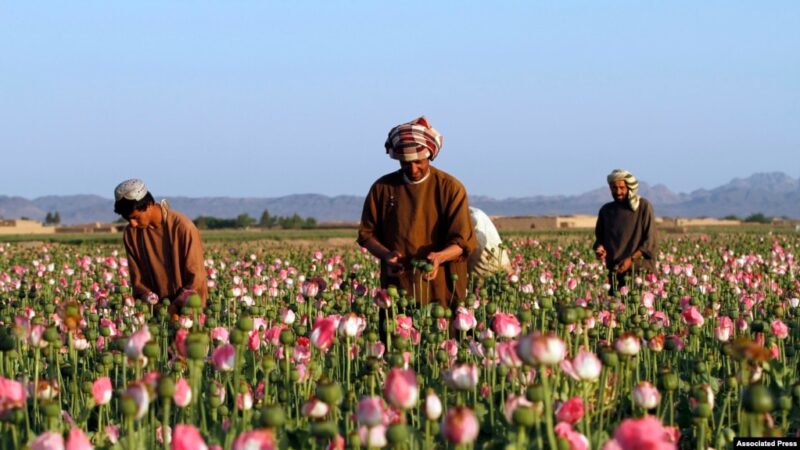The Taliban has shocked the world by announcing a complete ban on the cultivation of opium. The crop which had served as the biggest revenue source for the current and previous Taliban regime. The ban will apply to the trade of heroin, hashish and alcohol, followed by a total ban on the cultivation of narcotics, including the cash crop opium poppy.
The ban has been imposed during the opium harvesting season in southern Afghanistan. A Taliban spokesman warned farmers of dire consequences, jail and destruction/burning of their crops if they harvest opium.

Taliban Supreme Leader Haibatullah Akhundzada issued a decree for the Islamic Emirate of Afghanistan, informing all Afghan citizens that opium cultivation is strictly prohibited throughout the country.
The United Nations Office for Drugs and Crime estimates that Afghanistan earns at least $1.8 billion per year from the production of opium products, which accounts for more than 80% of the world’s supply of opium products. Even during the US–Afghan War, revenue from opium cultivation nourished the Taliban network and helped it survive the US attack.
The country’s poor economic condition had previously prompted farmers in the country’s southeastern provinces to grow opium as it offered higher yields and lower growth phase than food crops such as wheat.
According to the United Nations, half the population of Afghanistan is suffering from acute hunger.
In late 1994 and early 1995, the Taliban had imposed similar bans on the opium trade. However, after the overthrow of the Taliban in 2001, the ban was lifted. However, this current sanctions in the midst of a free-falling Aghan economy after the Taliban’s withdrawal in August 2021 only makes the economy worse.